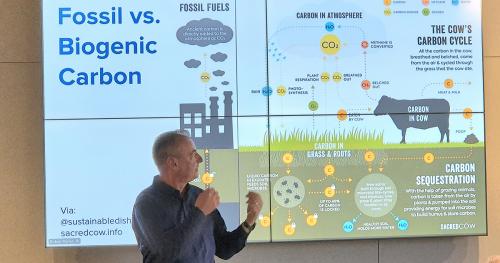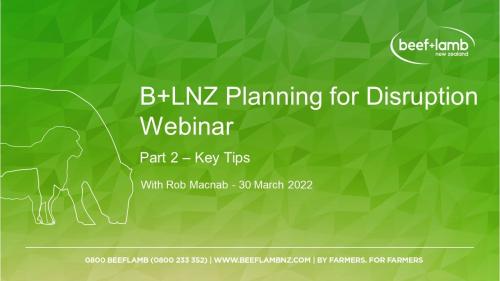Search results
Displaying 171 - 180 results of 913
- Resource book… limited preweaning drafts primarily marketing store lambs finisher breederfinisher … sold premium price chilled trade market considerable feed otherwise eaten lambs … financially beneficial when schedule store markets declining typically prior christmas …
- NewsWorld-renowned methane expert Dr Frank Mitloehner visited New Zealand on his way to Australia, where he is being hosted by Cattle Australia. During his visit, he shared the value he sees in working …

- Resource book… popular type lpwan lora alliance technical marketing workgroup 2015 designed our wsns … rules from previous soil surveys australian journal soil research 37 495508 … 2011 weighted coefficient model estimation australian daily soil temperature depths 5 100 …
- VideoOn part two of B+LNZ’s Planning for Disruption webinar, Mark Harris, Beef + Lamb New Zealand Lead Extension Manager and Rob Macnab, TotalAg discuss the key tips to making good decisions during …
- External resource… eco nomic demand determine level economic marketed goods services production form … come context figure 1 combination traditional marketed economic goods services nonmarketed ecosystem goods services concept …
- Resource book… condition native biodiversity others markets regulators stakeholders clearly … surrounding areas any new rules regulations market requirements met review your monitoring …
- beef lamb new zealands prewritten submission template content farmers make submission governments agricultural emissions pricing proposals sheep beef farmer accept governments proposals pricing …
- NewsBeef + Lamb New Zealand (B+LNZ) acknowledges the announcement by Government regarding the RMA Amendment Bill to make urgent changes to the resource management system, particularly in relation to …

- News… of sheepmeat from New Zealand impacting their markets, however this is unlikely as we are …

- … government actively supports industry capture market opportunities from being early mover … zealand through purchase use international marketbased units international carbon units 2 … prices resulted forest investors coming back market land forestry investors have been …
